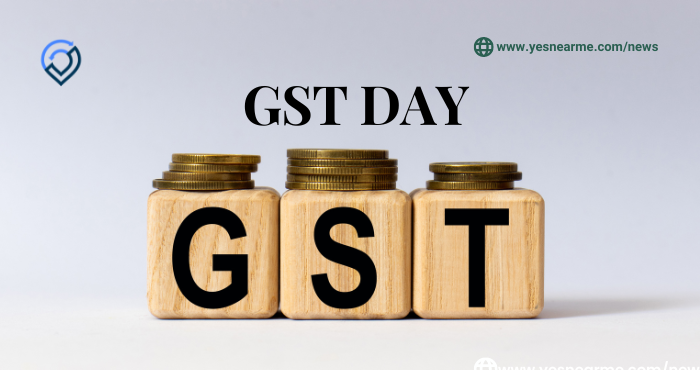
‘ ); } ?>

GST DAY
GST DAY is celebrated on 1st July to commemorate the implementation of the Goods and Services Tax (GST) that replaced the old indirect tax regime in the country. However, Shri Atal Bihari Vajpayee implemented this. Earlier, He started working as a leader of the BJP and started serving as the Prime Minister of India. However, France first adopted GST and later, India implemented it.
Table of Contents
GST DAY QUOTES
1) Our strength lies in small businesses and they will feel more secure with GST, the PM said. However, Consumers and small businesses will gain tremendously
2)GST is a good and simple tax regime that will eliminate the compounding effect of a multi-layered tax system. However, the government implemented Goods and service tax.
3)States in our country are not self-sufficient, but interdependent, Modi said. However, He stressed that GST will boost the economy of underdeveloped states and help them earn more revenue.
4)Goods and service tax is beneficial for the poor people of the states represented by them because those states will economically benefit the most from GST. However, They will use the money for the welfare of the poor people in those states.
5) I express my gratitude to those who gave their support to implement Goods and service tax in the country. accordingly, it was implemented.
6) Goods and service tax is the result of the combined efforts of all political parties. apparently, it was introduced.
7)GST will act as a major boost to economic efficiency, tax compliance, and domestic and foreign investment.
8)GST to make India’s exports more competitive and provide a level-playing field for domestic industry to compete with imports.
9)GST is a transparent and fair system that prevents black money and corruption and promotes new governance culture.
10)Goods and service tax rollout is a high point in India when the world is seeing slow growth. However, India can overcome the display of inclusion, focus, and boldness.
Gst day quotes in hindi
1) जीएसटी से घबराओ मत, यह टैक्स देगा राहत
2) जीएसटी आया – जीएसटी आया, पूरे देश में एक परिवर्तन लाया
3)नहीं लगेगा अब एक्स्ट्रा वेट, पूरे देश में अब एक ही रेट
4)पूरे देश में एक ही टैक्स, नाम जीएसटी देश बनेगा बेस्ट
5) जीएसटी से बढ़ेगी जीडीपी, देश बढ़ेगा बढ़ेगी पीढ़ी
6)जीएसटी बिल अब चल पड़ेगा, अतिरिक्त टैक्स न देना पड़ेगा
7)सरकार का है वादा, जीएसटी है बेहतर सौदा
8)अतिरिक्त टैक्स से छुटकारा मिलेगा, सस्ता होगा सामान जनता को लाभ मिलेगा
9): जीएसटी का उठाये लाभ, आप भी रहोगे खुश साहब
10)वस्तुएं होने लगेंगी सस्ती, तभी आएगी जनता को मस्ती
11)जीएसटी से बदलेगा देश, यही है जीएसटी का सन्देश
12)जीएसटी से न घबराओ, अब इतना मत शोर मचाओ
GST DAY CONCLUSION
This information is regarding GST DAY. However, it is a destination-based tax. Accordingly, We collect SGST at the time of state exporting goods. However, we collect CGST at the time of exporting central goods. IGST is levied on the inter-state transporting of goods and services.
DO VISIT OUR ARTICLE ON
Bamboo Garden
FOR MORE INFO
